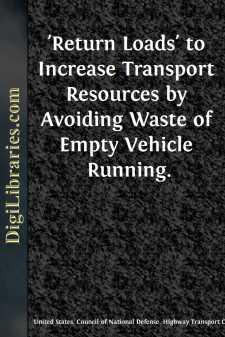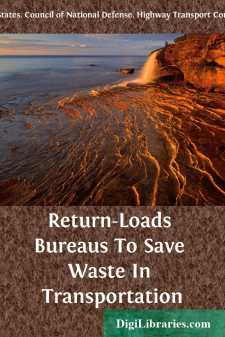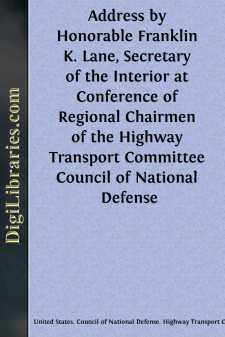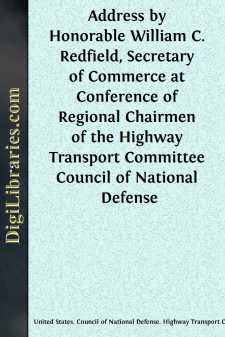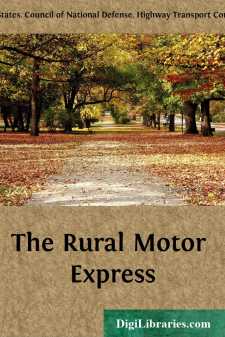Categories
- Antiques & Collectibles 13
- Architecture 36
- Art 48
- Bibles 22
- Biography & Autobiography 815
- Body, Mind & Spirit 144
- Business & Economics 28
- Children's Books 18
- Children's Fiction 14
- Computers 4
- Cooking 94
- Crafts & Hobbies 4
- Drama 346
- Education 58
- Family & Relationships 59
- Fiction 11834
- Games 19
- Gardening 17
- Health & Fitness 34
- History 1378
- House & Home 1
- Humor 147
- Juvenile Fiction 1873
- Juvenile Nonfiction 202
- Language Arts & Disciplines 89
- Law 16
- Literary Collections 686
- Literary Criticism 179
- Mathematics 13
- Medical 41
- Music 40
- Nature 179
- Non-Classifiable 1768
- Performing Arts 7
- Periodicals 1453
- Philosophy 65
- Photography 2
- Poetry 896
- Political Science 203
- Psychology 44
- Reference 154
- Religion 515
- Science 126
- Self-Help 85
- Social Science 82
- Sports & Recreation 34
- Study Aids 3
- Technology & Engineering 59
- Transportation 23
- Travel 463
- True Crime 29
Our website is made possible by displaying online advertisements to our visitors.
Please consider supporting us by disabling your ad blocker.
'Return Loads' to Increase Transport Resources by Avoiding Waste of Empty Vehicle Running.
Categories:
Description:
Excerpt
To increase the highways transport resources as one of the means of strengthening the entire transportation system of the country, and for the purpose of avoiding the waste incurred by running transport vehicles empty, return-load bureaus are established. These bureaus are a means of bringing together the shipper having goods to move and the operator of an empty vehicle which is possibly running to the point for which the goods to be shipped are destined.
With the cooperation of State councils of defense, chambers of commerce, local war boards, and other organizations the Council of National Defense, through its Highways Transport Committee and its State Councils Section, is building up a system for the efficient utilization of the highways of the country as a means of strengthening the Nation's transportation resources and affording merchants and manufacturers relief from necessary railroad embargoes and delays due to freight congestion.
State Highways Transport Committees are being organized in all States of the Union. The primary functions of the State Highways Transport bodies are the development of the five outstanding activities to which instant attention is being given by the Highways Transport Committee of the National Council of Defense, as follows:
Return Load Bureaus, Rural Express, Cooperation with Federal Railroad Administration, Educational, Transport Operating Efficiency.
These activities encompass, briefly, and in the order named, the following:
Elimination of empty running of trucks by bringing together shipper and truck owner in such way as to provide full loads wherever possible.
Rapid development, over fixed routes, of daily power-vehicle service, with definite schedules of stops and charges and provision made for gathering shipments both on outgoing and incoming trips.
Substitution of adequate truck service that the intracity and short-haul service of rail carriers may be relieved and partially supplanted; the relief of congested terminals, and an effective store-door delivery plan.
Organization of a campaign to place highways transport work throughout the States in its proper light before the public, that the support of the people in favor of national policies may be made certain. To this end an outstanding feature of the work will be enlistment of the support of all users of highways transport.
Making transportation more efficient through encouragement of such use of highways transport as will eliminate making trips with part loads, the loss of time in loading and unloading, and unnecessary delays in the handling of receipts.
By taking part of the burden of the "short haul" off the railroads and placing it on motor trucks operating over the highways, millions of tons of merchandise and materials are transported satisfactorily and the railroads are given much needed relief. The motive power and cars thus freed from short-haul work can be employed in very important long-distance service. The Railroad Administration has indorsed motor transportation for this work and reported that this form of relief will make it possible for the railroads to operate more effectively under the present traffic congestion; hence shippers using the highways are assisting in the solution of transportation problems and rendering a patriotic service. It is also to be noted that if shippers use the highways for short hauls and thus relieve the railroads of a burden, they assist in improving general conditions so that they will indirectly benefit by having more prompt service on long-distance shipments.
...

